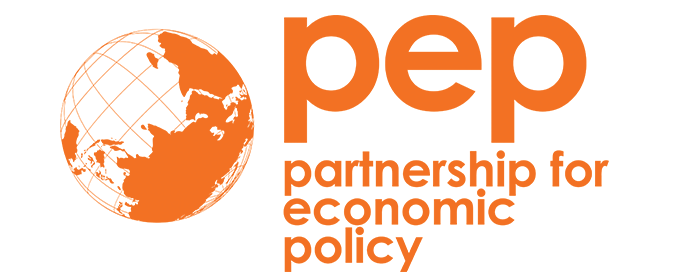Who We Are
Global Education Analytics Institute (GEAI) is a U.S. 501c(3) nonprofit institute designed to foster economic development through improving education. Its mission is to help developing nations improve their education systems through systematic evaluation, research, and training. It aims to support the development of better decision-making by educational policymakers. While there are multiple ways to provide this support, the initial efforts are focused on developing a network of skilled local people who can lead education policy in Sub-Saharan Africa.
GEAI was founded by Eric A. Hanushek. He is an economist who is internationally recognized for his economic analysis of educational issues. His research has had broad influence on education policy in both developed and developing countries. He was awarded the 2021 Yidan Prize for Education Research. The funds from the Yidan Prize provided the initial resources for the Africa Fellows in Education Program
Where we work
The inaugural program is administered from Nairobi and is designed to span Sub-Saharan Africa.
Africa Fellows in Education Program (AFEP)
AFEP Vision
To improve education decision-making for long-term economic development across Sub-Saharan Africa.
AFEP Mission
To build a network of local policy fellows with enhanced skills in evaluating existing educational research, developing and using performance data to make better decisions, and introducing rigorous evidence into the decision-making process.
Leadership
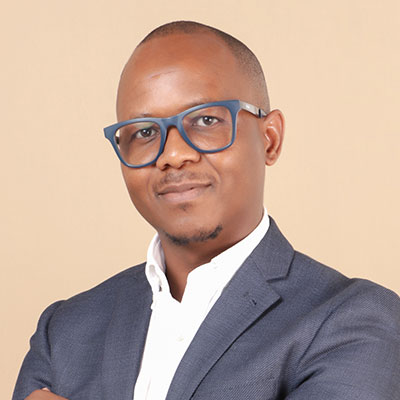
Ramaele Moshoeshoe, Executive Director
Ramaele Moshoeshoe is the Executive Director of the Global Education Analytics Institute (GEAI), leading the Africa Fellows in Education Program (AFEP) in collaboration with the Partnership for Economic Policy (PEP). He is also affiliated with the National University of Lesotho, where he is a Senior Lecturer (Assistant Professor) in the Department of Economics. Before joining GEAI, he was the Head of the Department of Economics and a member of the Senate of the National University of Lesotho. He was a 2020 World Bank Visiting Scholar (in the Chief Economist’s Office for the Africa Region) and a Visiting Research Fellow at the UNICEF Office of Research – Innocenti under the Transfer Project. Ramaele is an applied microeconomist whose research interests lie at the intersection of development economics, labour economics and the economics of education. He is an active member of the African Economic Research Consortium (AERC) research network and a member of the Econometrics Society, Africa Region. His research has been published in international journals such as the Annals of Economics and Statistics, the Journal of African Economies, and the Education Economics journal. He holds a PhD in Economics from the University of Cape Town.
Fellows
The focus of AFEP is supporting the development of a stronger education research network in Africa. A carefully selected group of policy analysts will participate in two-year research and policy development fellowships that introduce them both to relevant research and analytical experiences and to international networks of researchers and policy advisers. The objective is to build a group of Africa-based leaders capable of developing evidence and shaping educational policies that are relevant for their countries. They would be part of a global network of such people and, if successful, could also build out local networks of strong advocates for improvement of schools.
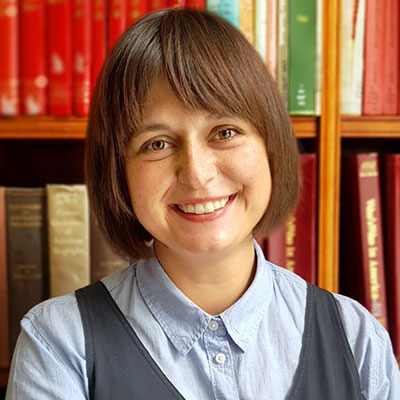
Dr. Heleen Hofmeyr
Heleen Hofmeyr is a Postdoctoral Research Fellow in the Economics Department at Stellenbosch University. Her research focuses on the role of socio-emotional skills in education, particularly in low- and middle-income countries and she has led numerous large-scale research projects in South Africa. She is passionate about bringing together insights from different disciplines to better understand how to support vulnerable children in education.
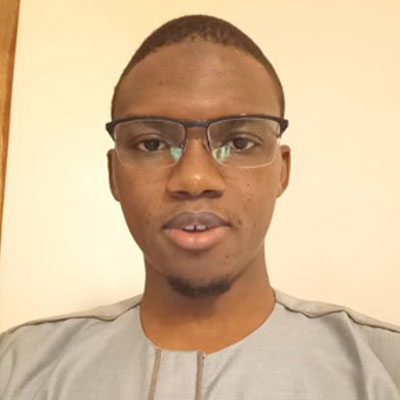
Dr. Amadou Jallow (Ph.D.)
Amadou Jallow holds a PhD in Economics from the University of Naples Federico II, Italy, and an Advance Masters in International and Development Economics jointly from the University Catholic de Louvain and University of Namur, Belgium. I currently work as an Economics Lecturer and also serve as the Unit Head of the Economic Program at the University of The Gambia where I lecture courses in Macroeconomics, and International Economics to both undergraduate and graduate level students. I am also a research affiliate at the Center for policy Research and strategic studies (CepRass). My research interest lies in the area of development economics, mainly on migration, education, agricultural policies and impact evaluations in developing countries.
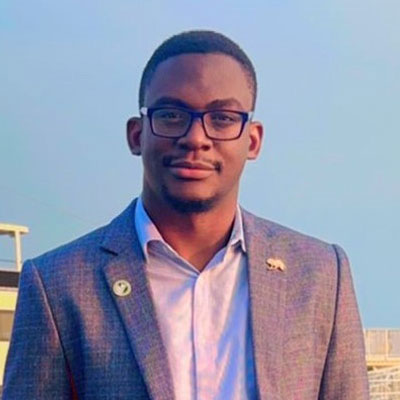
Dr. Jaah Mkupete
Jaah Mkupete is a development economist and Lecturer affiliated with the University of Dar-es-Salaam, Mkwawa University College of Education. Jaah is also a Postdoctoral Researcher in the Department of Dietetics and Nutrition at the University of Western Cape. Jaah holds a PhD in Economics from the University of Stellenbosch. His research interests are human capital accumulation (health and education) and understanding the interaction between climate change, food systems, gender and nutrition in Sub-Saharan Africa using traditional empirical methods and spatial econometrics.
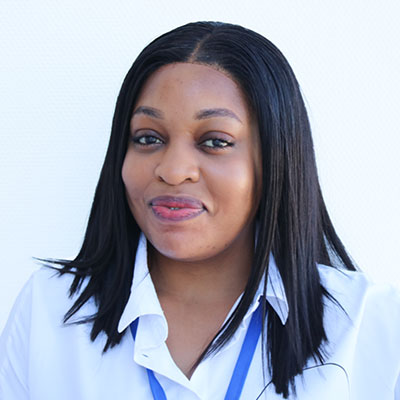
Dr. Yselle Malah Kuete
Yselle Malah Kuete is a distinguished researcher and lecturer in development economics. With a Ph.D. in the field, her expertise lies in human capital development, structural transformation, and labor market inequalities. She has collaborated with international organizations like the United Nations Economic Commission for Africa and the Organisation for Economic Co-operation and Development. Currently a lecturer at the University of Yaoundé 2 in Cameroon, Yselle's research focuses on improving primary education systems in Sub-Saharan African countries. She has undertaken projects analyzing factors affecting elementary school performance and studying regional and gender inequalities in education quality.
Affiliated Organizations
Partnership for Economic Policy (PEP)
The Partnership for Economic Policy (PEP) is a Southern-led global organization dedicated to supporting development in the global south. PEP does this by providing high-quality, locally-generated evidence that informs better decisions in policy and practice. Its central premise is that evidence produced from an in-country perspective by empowered and engaged local researchers results in better policy choices, more sustainable development outcomes, and more inclusive policy debates.
Yidan Prize Foundation
The Yidan Prize Foundation is a global philanthropic foundation, with a mission of creating a better world through education. Through its network of innovators, it supports ideas and practices in education—specifically, ones with the power to positively change lives and society. I annually awards the Yidan Prize, an inclusive education award that recognizes individuals who have contributed significantly to education research and development. The prize aims to progress learning by building a global community committed to advancing ideas in education.
Who We Are
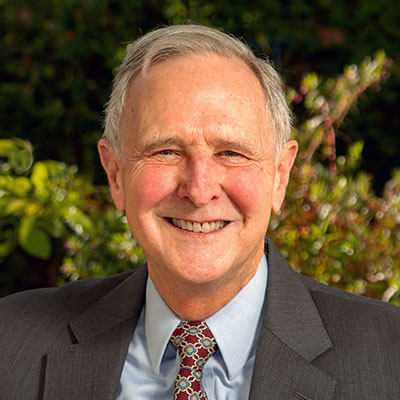
Eric Hanushek, President
Eric Hanushek is the Paul and Jean Hanna Senior Fellow at the Hoover Institution of Stanford University. He is internationally recognized for his economic analysis of educational issues, and his research has had broad influence on education policy in both developed and developing countries. He received the Yidan Prize for Education Research in 2021. He is the author of numerous widely-cited studies on the effects of class size reduction, school accountability, teacher effectiveness, and other topics. He was the first to research teacher effectiveness by measuring students’ learning gains, which forms the conceptual basis for using value-added measures to evaluate teachers and schools, now a widely adopted practice. His recent book, The Knowledge Capital of Nations: Education and the Economics of Growth summarizes his research establishing the close links between countries’ long-term rates of economic growth and the skill levels of their populations. His current research analyzes why some countries’ school systems consistently perform better than others. He has authored or edited twenty-four books along with over 250 articles. He is a Distinguished Graduate of the United States Air Force Academy and completed his Ph.D. in economics at the Massachusetts Institute of Technology.
Advisors
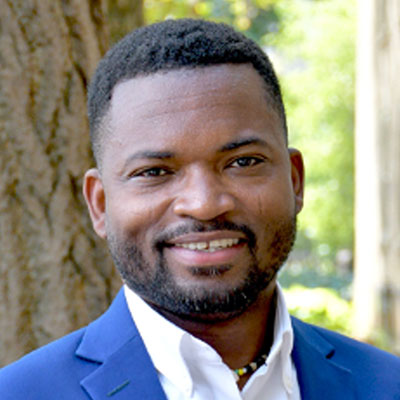
Moussa Blimpo
Moussa Blimpo is an Assistant Professor of Economic Inequality and Societies at the University of Toronto's Munk School of Global Affairs & Public Policy. He was a Senior Economist in the Africa Chief Economist Office at the World Bank. His research addresses various issues, including education and labor economics, infrastructure, and taxation in developing economies. His work on the economics of education examines how demand-side features drive education quality and skills acquisition, particularly the incentives and involvement of students and parents in the educational system. He served as a member of the Intellectual Leadership Team of the Research on Improving Systems of Education (RISE) Programme, which sought to understand how education systems in developing countries can raise learning outcomes.
He has led research programs at the World Bank on electricity access and digital development in Africa, among others, publishing key reports such as "Electricity Access in Sub-Saharan Africa" in 2019 or " Digital Africa, Technological Transformation for Jobs" in 2023. His work on these issues emphasizes the role of political economy, complementarities, and access for productive use.
Email: moussa.blimpo@utoronto.ca
Website: https://sites.google.com/site/mpblimpo/welcome-cv
Linkedin: https://www.linkedin.com/in/moussa-p-blimpo-824821/
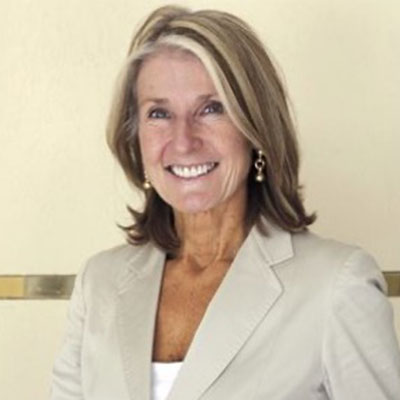
Barbara Bruns
Barbara Bruns is a Non-resident Fellow at the Center for Global Development and a professor at Georgetown University, after a thirty-year career at the World Bank as an education economist specializing in Latin America. Her books include Great Teachers: How to raise student learning in Latin America and the Caribbean, with Javier Luque (2015), Achieving World Class Education in Brazil: the Next Agenda (2012), with David Evans and Javier Luque, and Making Schools Work: New Evidence on Accountability Reforms, with Deon Filmer and Harry Patrinos (2011). Her research focuses on the politics of education reform and classroom observation of teachers to understand how policy reforms and programs affect teacher practice. She has been a member of the RISE program Intellectual Leadership team and GAML, the UNESCO Global alliance for measurement of learning.
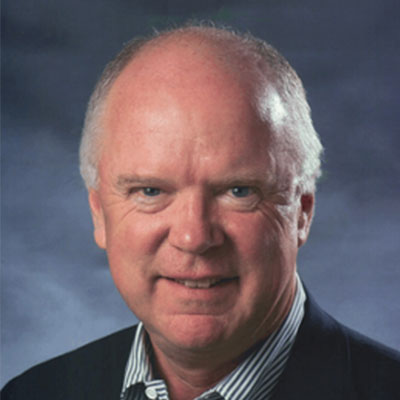
Michael Ditmore
Michael Ditmore is Co-founder and Executive Director of Novim. Michael began his business career with IBM as a systems engineer. After receiving an MBA from Stanford in 1970, he relocated to Germany as Director of European Operations for Canberra Industries. Following the sale of his division in 1972, he returned to California, joining a startup–ROLM Corporation, where he served as a regional manager for sales. The company was sold to IBM in 1984. Michael subsequently founded and sold 2 high technology medical device companies.
In 1995 he co-founded and served as Chairman and CEO of the Systems and Software Consortium, a non-profit association of 150 companies whose first project was the creation of the Pacific Technology Center in Goleta, the largest high tech incubator in southern California at the time.
Professional Associations – Michael currently serves on the Director’s Council of the Kavli Institute for Theoretical Physics at UCSB, and is a life member of the USAF Academy Association of Graduates, the Stanford Alumni Association and Stanford Associates. He is a past member of the Board of Directors of Junior Achievement of Southern California; the Executive Board of Santa Barbara Partners in Education; and the Stanford Business School Alumni Association Board. He has served on advisory boards for the NASA Ames Incubator and Los Alamos National Laboratory.
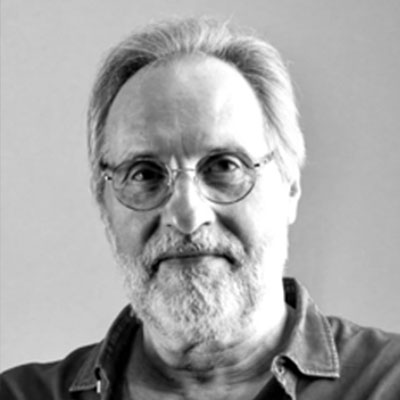
Joseph Hoffman
Joseph Hoffman’s background straddles higher education reform, public policy, research, and governance, through public service and consultancy experience. As a consultant, his clients have included governments, the World Bank, UNDP, EU, IADB, IDRC, CIDA, ADB and FCDO (DFID) directly or indirectly through major international firms and not-for-profits. His 20+ years of government experience includes senior roles spanning education/training, labour, intergovernmental relations and economic policy. Joseph is a currently a senior associate with Paeradigms, a Swiss-based NGO and social enterprise which recently completed a review of the 42 Master's and PhD programmes of the Pan African University. He was involved in the FCDO Strategic Partnerships for Higher Education Innovation and Reform programme from its pre-inception in 2015, and as team leader from 2016 through May 2021. Prior to that he was the founding Executive Director of the Nairobi-based Partnership for African Social & Governance Research, which has led several innovative collaborations in higher education and research. He currently sits on the independent advisory board of the Association of Commonwealth Universities’ Partnership for Enhanced & Blended Learning (PEBL–West Africa), is a strategic advisor to the Lending for Higher Education in Africa Partnership (LEAP), and recently assisted the British Council with the design and launch of its Innovation for African Universities programme. In past years he was active in several research and capacity-building projects of the Global Development Network; was a member of the Advisory Board of the Data-Pop Alliance, a think-tank on big data and development; and Board member of International Lawyers & Economists Against Poverty.
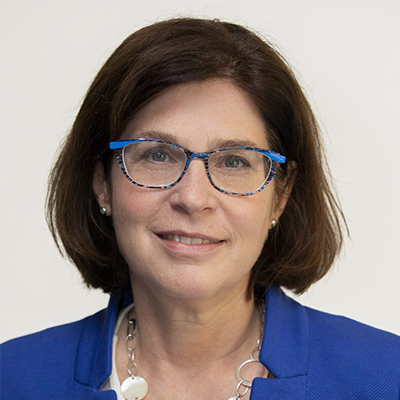
Karen Mundy
Karen Mundy is a Professor of Educational Leadership and Policy at the University of Toronto (cross-appointed to the Munk School of Global and Public Affairs) and a leading expert on education in the developing world. As Chief Technical Officer at the Global Partnership for Education, the world’s largest global fund providing more than $500 million per year to 67 developing countries, she led the development of GPE’s Strategic Plan 2015-2020, its Gender Equality Strategy, its Results Framework, Monitoring and Evaluation Strategy (2015-2020), and the publication of GPE’s first two Results Reports. At the University of Toronto, Dr. Mundy has been a Canada Research Chair (2002-2012) and the Associate Dean of Research and Innovation (2012-2014). She was the President of the Comparative and International Education Society (2014-2015). Her research has covered the global politics of “education for all”; educational policy and reform in Sub-Saharan Africa; and the role of civil society organisations in educational change. She has published six books and more than five dozen articles and book chapters and is a contributor to dozens of policy papers and reports. She is a two-time winner of the Bereday award for best article in the Comparative Education Review (1998, 2015).
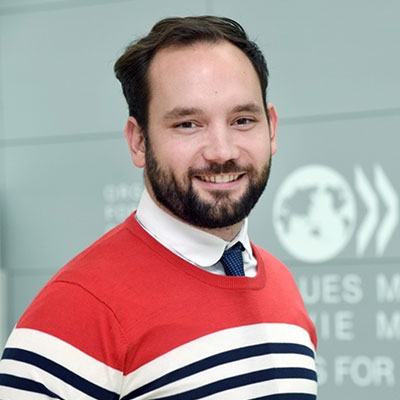
Nic Spaull
Nic Spaull is an Associate Professor in the Economics Department at Stellenbosch University. His research centres on education policy in South Africa with a focus on inequality and early grade literacy and numeracy. He has published numerous books and academic articles, most recently South African Schooling: The Enigma of Inequality published by Springer in 2019 and two books on early grade reading and mathematics published by Oxford University Press in 2022. He also advises local and international philanthropies and policy makers and comments regularly in the media. His research and commentary are available on his website nicspaull.com
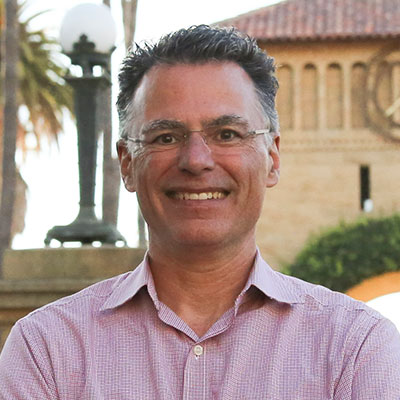
Christopher Thomas
Christopher Thomas is Director of Partnerships at the Yidan Prize Foundation and Social Entrepreneur in Residence at Stanford University’s Graduate School of Education. Before coming to the Yidan Prize and Stanford, he was the Advisor to the Education Global Practice at the World Bank. He has served in a range of corporate strategy and management roles at the World Bank Group, including Lead Strategy Officer, Advisor to the Managing Director, and Manager of human development programs in Asia and Africa. Mr. Thomas played a key role in forging the World Bank’s contributions to the Sustainable Development Goals, United Nations agreements on Financing for Development, and partnerships with the IMF and multilateral development banks. Mr. Thomas holds an M.A. in International Affairs from Johns Hopkins University and a Ph.D. in Education from Stanford University.
News
The Program offered the Fellows a unique opportunity to learn through interaction with leaders and policy experts in the field. Within the first three months, the Fellows attended a specially tailored workshop on the ‘Economics of Education’ at the CESifo Institute and participated in the CESifo Area Conference on the same topic in Munich.
The Fellows also visited the UNESCO IIEP (International Institute for Educational Planning) and the OECD’s (Organization for Economic Cooperation and Development) Directorate for Education and Skills in Paris. At the IIEP, the Fellows learned about how to use learning assessment data for monitoring, the link between quality of education and learning levels of students, and the use of data for crisis-sensitive educational planning.
At the OECD, the Fellows learned about how the PISA (Programme for International Student Assessment) measures student learning, and about two surveys, including the Teaching and Learning International Survey (TALIS) as well as the Teaching Knowledge Survey.
Further, two of the Fellows, Jaah and Yselle along with the AEFP Director Ramaele Moshoeshoe, attended a workshop on ‘Enhancing Africa-Led Research on Early Childhood Development and Foundational Learning’ organized by the Research for Equitable Access and Learning (REAL) and the Education Sub-Sahara Africa (ESSA) in Nairobi.
